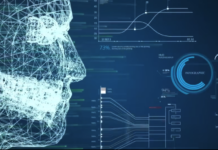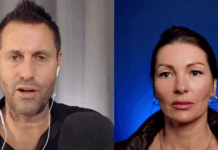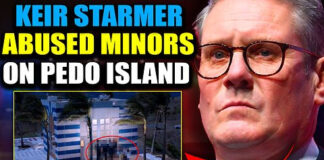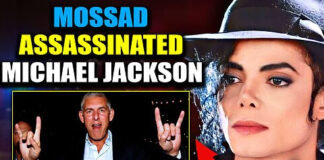ANONYMOUS TEACHER,
I wrote an article for the Daily Sceptic earlier this year in which I outlined some of the problems I have observed first-hand as a teacher in secondary education. You might call this, as the woke brigade would, my ‘lived experience’. That article described various problems with the content of teaching resources, notably in PSHE (Personal, Social, Health and Economic Education for those readers who may be less familiar with education jargon) and assemblies. The conclusion was generally upbeat as it recognised there is a growing number of young people who can see through the woke propaganda being pushed in schools. But the article did not necessarily address the issue of how and why this ideological drive is occurring, why teachers are promoting such ideas and where all this nonsense comes from. This article argues the problems in schools have much deeper roots than what we see on the surface when activist teachers indulge their ideological fantasies. It argues the problems we see in the classroom are the product of an ideologically charged teacher training system rooted in neo-Marxist theory and a flawed legal and policy framework which ultimately facilitates the proliferation of woke ideology. Often these concepts are conveyed quite militantly too. It posits these issues contribute to an education system which not only fails students and staff, but also undermines democratic values and free thinking in Western society.

It is certainly obvious that some educational materials are blatant Left-wing propaganda. Teaching materials which basically promote gender ideology, Critical Race Theory (CRT), Leftist concepts about ‘power’ (however that is defined) and anthropogenic climate change (or rather ‘climate crisis’ as we’re now told) find their ways into the classroom routinely. But there is also a far more insidious problem underpinning education in British schools. And that problem is to be found within pedagogical practice, which itself is drawn from flawed teacher training, education policy and law. For the Left-wing activist, overt propaganda on its own is not enough as it runs the risk of alienating those whom it is directed at. Instead, the actual pedagogy, or teaching method, is targeted and reformed to maximise the impact and efficiency of delivering woke political literacy.

Materials used for teacher training courses promote Leftist pet projects through their embrace of critical theory. One of the standard texts in my own training recognised how history could be a “vehicle for the delivery of generic curriculum aims”. And indeed it is, though that by itself is not necessarily the problem. Rather, the issue is what those “generic curriculum aims” are defined as. If those aims are defined through an objective lens and are designed to positively impact on academic progress, then that is not a problem. But if those aims are drawn from politically charged initiatives, then that is a significant problem. Sadly, it is often the case that those aims are inherently political. The text I alluded to a few lines ago anticipated how climate change would become “a central feature of the school curriculum”. How right the authors were, especially in the case of the school I teach at where the major drive for this last academic year was apparently ‘sustainability’. Not quite the priority one perhaps ought to expect from a school, but we are living in some decidedly strange times.
In another core text used for teacher training, the authors assert (italics in original) “it is inadequate simply to ensure that formal equality of opportunity is provided” on the grounds that it “does little to break down equality of access and uptake” and facilitates “reproduction of inequality”. Evidently laying their ideological cards out, the authors push for “equality of outcome“. Furthermore, they state:
Equal opportunities has a clear political agenda that promotes empowerment in individuals, groups, cultures and society at large, that reduces illegitimate differentials of power, and that breaks down illegitimate discriminatory practices in society.
This is all very revealing, since it is clear the authors are basing their claims on a set of assumptions and are fixated on a form of social justice. The ideas advocated by the authors are derived from critical theory, which is a neo-Marxist concept which originated in the Frankfurt school of thought in Germany in 1923. It is essentially a critique of society which suggests technology, consumerism and popular culture manipulate people and suppress their individuality and consciousness. The aim behind critical theory is to instil revolutionary thinking and thereby instigate major cultural, social and political change. This is of course the essence of wokeism. The authors of this teacher training manual are evidently interested in ‘power’ (however that is defined) and appear to believe there is some oppressed group which is locked out of accessing that power. Alongside this, they also seem to believe discrimination (again, however that is defined) is rampant throughout Britain. And where might these ideas come from? The authors cite Pierre Bourdieu, a French sociologist who sympathised with Marxist ideology.
What is interesting here is the authors assume they are all-knowing and morally correct, with society at large being somehow ignorant and wrong. They are like the “little intellectual elite” Ronald Reagan alluded to in 1964 and they apparently see themselves as a corrective for what they perceive to be society’s ills. Perhaps discrimination is rampant throughout Britain. As far as the BBC and the Guardian are concerned, it no doubt is. Yet one wonders whether at least some discrimination is engineered by overly sensitive social justice warriors who justify their own existence by actively seeking out things to be offended by. That overly sensitive approach is fostered and promoted by ideologically partisan material and instructors within teacher training. From there it is projected into schools, turning them into political centres in which the next generation of activists can be groomed and trained.
Furthermore, existing legislation, guidance from the Department of Education and school inspection frameworks appear to make matters worse. It is true the Department for Education outlines how teachers should not promote partisan political views, and this is echoed in inspection frameworks. However, there are problems lurking beneath this which prevent politically impartial, or at least balanced, teaching from being achieved. For example, the Department for Education outlines in one scenario that:
Teaching about climate change and the scientific facts and evidence behind this, would not constitute teaching about a political issue. Schools do not need to present misinformation, such as unsubstantiated claims that anthropogenic climate change is not occurring, to provide balance here.
All this is reinforced by the fact that the Department for Education aims to give “all children, young people and adults the knowledge and skills to thrive in the green economy”. It asserts students (referred to as “learners”) “need to know the truth about climate change – through knowledge-rich education” so they can become “agents of change”. And that’s from a supposedly conservative Government. Aside from the Marxist-style language, the implication here is that the science is settled over anthropogenic climate change. Any alternative view must therefore be wrong and part of some kind of whacky conspiracy theory. Thus, this leaves an open goal for teachers of the green persuasion to brainwash children with scary red weather maps whilst leaving those who are less enthusiastic unable to tackle it without infringing impartiality rules. The potential consequence of this is that children will go through school without being aware of, let alone understanding, the problems with the so-called science behind anthropogenic climate change. And the inevitable consequence of this is, as Thomas Sowell argues, an education system that acclimatises students into “taking sides on weighty and complex issues after hearing just one side of those issues”.
Moreover, they are habituated to venting their emotions instead of analysing conflicting evidence and dissecting conflicting arguments. In short, they are led to pre-packaged conclusions, instead of being equipped with the intellectual tools to reach their own conclusions, including conclusions different from those of their teachers.
Schools therefore end up driving, as Joanna Williams has observed, “conformity to a particular viewpoint”. And if matters like man-made climate change are taken as truth and cannot be questioned, what precedent does this set for other issues? It opens the door to the stifling of intellectual enquiry and curiosity within schools. It creates an educational system and culture which are the antithesis of Enlightenment ideals of pursuing knowledge through tolerance, reason and evidence. In their place it installs intolerance, reductive groupthink and a drive for emotional dogmatism.
Ironically, the approach taken within at least some schools would seem to constitute a form of radicalisation. The NSPCC states signs of radicalisation include “talking as if from a scripted speech” and “increased levels of anger”. Prevent, the national safeguarding programme designed to support those at risk of being involved in terrorism, recognises how “expressing an obsessive or angry sense of injustice about a situation, and blaming this on others” can be another sign of radicalisation. These signs can certainly be detected in staff and pupils who regurgitate hysterical woke claims on a range of issues. If the education system is geared towards the promotion of monocausal narratives and is unwilling to engage in broader intellectual contexts, then it is itself complicit in radicalisation.
Perhaps the deepest and most disturbing element in education is the so-called wellbeing initiatives and a growing emphasis on social and emotional learning (SEL). SEL is supposed to be able to boost children’s socio-economic outcomes in life by, amongst other things, making them more resilient, improving their mental health and improving their ability to forge positive relationships. Section 10 of the Children Act 2004 stipulates that local authorities are to promote cooperation amongst those individuals and bodies involved in working with children. The intention is to promote wellbeing, which is outlined as:
(a) physical and mental health and emotional well-being;
(b) protection from harm and neglect;
(c) education, training and recreation;
(d) the contribution made by them to society;
(e) social and economic well-being.
Ostensibly, this may sound perfectly fine. However, not all is what it may seem, and these initiatives can be key vehicles for indoctrinating children whilst simultaneously encroaching on parental responsibilities. In the wake of the civil rights movement of the 1960s, Left-wing intellectuals began to shift their focus towards emotional health as a way of understanding and correcting the perceived problems in society, such as race relations. One can see the potential implications of this when applied to education. James Lindsay has argued SEL is rooted in Marxist ideology, with the whole concept being based around a strategy in which children are ‘conscientised’ so they learn to denounce the society in which they live and thereby become political activists. The objective is that such conscientised students will then be able to go out and instigate “change”, which means cultural revolution. From what I have seen, this is plausible as the content and themes within wellbeing and SEL often centre on social justice issues like CRT. Indeed, ‘social justice’ and ‘equity’ are explicitly alluded to by those bodies which promote SEL.
Even if the intention is not to indoctrinate, then there are still significant psychological issues inherent within these initiatives. There certainly is a strange correlation between the growing emphasis on SEL and an increase in the number of young people suffering from mental health problems, with one in six children aged five to 16 experiencing mental health problems in 2021 compared to one in nine in 2017. Lockdowns have certainly impacted on children’s mental health, though one cannot help but wonder whether schools have contributed to poor mental health by basing teaching practice on seriously flawed theories.
Exactly how effectively have schools improved children’s wellbeing when they’ve spread fear by promoting things like COVID-19 hysteria and the ‘climate crisis’? How confident can children in Britain be when they are encouraged to question their gender identity and are told this country ran an evil empire based on slavery? How can children be resilient when they are led to believe they need safe spaces? How can children be prepared to engage in reasoned debate if they are not even aware of, let alone understand, alternative views? And if they happen to agree with a legitimate viewpoint, they could easily find themselves being smeared with all manner of vile labels. Encouraging children to think there are more genders than those which biologically exist, thereby potentially leading them towards life-altering surgery which they may later regret, is also hardly conducive to good physical and mental health.

The Mental Health Foundation outlines a range of factors which can cause poor mental health, one of them being discrimination. However, it is not clear whether that is drawn from proven instances of discrimination or whether it is based on the individuals in question perceiving discrimination. This is where there may be a distinct possibility that wellbeing initiatives and SEL in schools have made more children hypersensitive, less resilient and thus more susceptible to poor mental health. This then fuels further demand for the self-appointed experts on wellbeing initiatives. Indeed, there is evidence to suggest Left-wing ideology itself may be the cause of poor mental health and this poses major ethical issues as teachers use the classroom to indulge in political activism. As Thomas Sowell points out, teachers have “no professional qualifications for understanding the dangers of manipulating children’s emotions”. It might very well be that certain practices within schools may constitute a form of reverse cognitive behavioural therapy, or perhaps even emotional abuse. But what appears to be the response to tackling mental health issues in schools? Yet more wellbeing and SEL initiatives.

In 1993, the Runnymede Trust suggested pupils should be “confident and self-affirming rather than insecure and ashamed of their culture”. It is the experience of this teacher that schools have been failing children for some time, especially over the last three years. Paranoia over Covid and an incessant banging of the woke drum via skewed narratives which obsess over issues like the Transatlantic Slave Trade (with selective evidence) have undermined pupils’ confidence and made many ashamed of British culture. The proliferation of unsound neo-Marxist concepts, such as Critical Race Theory and gender ideology, in lesson materials (especially in PSHE) mean a growing number of pupils are developing in an environment which has normalised the erroneous, abnormal and illogical. Quite how the teaching of CRT, which emphasises difference and promotes identity politics, sits with the requirement in the Teachers’ Standards for teachers to uphold “fundamental British values” and “mutual respect” is puzzling. And senior managers’ incorporation of contentious unconscious bias training in staff development hardly bodes well for promoting harmonious social and professional relations. That of course is the aim of critical theory and cultural Marxism: perpetual revolution.
Sitting on top of all this, of course, are those individuals who oversee Equality (or Equity, as my school has decided to call it), Diversity and Inclusion. As has been seen elsewhere, notably Coutts’s handling of Nigel Farage’s bank account, EDI is anything but inclusive. It is instead a means of introducing vile identity politics and a false consciousness into schools under the pretence of being virtuous and helpful. Those who run it seem to act like political commissars and the whole initiative champions its own form of ‘social justice’, with a range of politicised moral crusades being introduced into schools without any wider consultation. In doing so a narrative is established which nobody is meant to question. Thus, it presents students with a one-sided view and leads them down a tunnel which prevents them from seeing legitimate alternative opinions. What it does achieve, however, is a ‘conscientised’ staff and student body which, much like religious zealots of the 17th century, sees the work of the Devil in every aspect of life. It converts staff and students into present-day Matthew Hopkins characters who seek out, and see, evidence of Satan and his witches of social injustice.

And what of those teachers who try to tackle the woke orthodoxy? Whilst I understand why many readers may be sceptical as to whether such professionals exist, I can assure them there are at least some out there who are trying to resist it. But those teachers face significant challenges. If they try to challenge woke ideology directly, they at the very least face being ostracised by their colleagues for supposedly being Right-wing loonies. At worst, they face disciplinary action for breaching political impartiality under sections 406 and 407 of the Education Act 1996. A very curious phenomenon on this front is the way in which school managers (or ‘leaders’ as they seem to see themselves) employ double standards. They will be quick to promote the latest woke ideological absurdity yet target those individuals who encourage pupils to engage in open debate and denounce them for breaching political impartiality. Either this is a deliberate attempt to sweep away opposition so they can control narratives (and thereby continue to engage in brainwashing) or they simply fail to see that they themselves are breaching impartiality.
Toby Young recently explained that:
The way in which the woke mind virus spreads within an institution is that the infected aren’t aware they’re infected; they think they’re well and everyone who doesn’t agree with them is infected. It’s an ideology that is believed by its adherents to be non-ideological, thereby enabling them to enforce it without thinking they’re doing anything ‘political’ and without feeling any corresponding need to defend their actions.
It’s a very compelling point and could very well explain some of the issues in schools. It could be the case that senior managers in schools believe all they are doing is abiding by established guidance and practice. Another possibility is educational professionals have been so thoroughly programmed into certain ways of thinking, courtesy of the education system they themselves went through, that they are unable to see the politically charged nature of their own practice. They might have, as the woke would say, an unconscious bias.
A major part of the issue is that schools and teachers have found themselves on the frontlines of the culture war and in the middle of a political football, whether they like it or not. The consequence of this is that, irrespective of whether they are intentionally breaching impartiality rules, teachers are increasingly having to operate beyond their professional expertise and capacity. Instead of being able to teach their subjects, teachers are expected to be able to solve whatever societal problems are said to exist. Education is increasingly less concerned with academic proficiency and subject knowledge but increasingly obsessed with instilling woke values as a way of tackling perceived social issues. And this is where those of the woke persuasion are incredibly Machiavellian. They claim to be for saving the planet, against discrimination, against racism, against inequality, against anything which might be nasty or unpleasant. These seemingly noble aims and values are embedded within the curriculum and in education policy, but they are actually camouflage for political activism and have the effect of driving intolerance of intellectual diversity. Depressingly, Government actions and teacher training programmes have enabled woke ideology to gain traction in schools by basing policy and practice on concepts which are, to use woke language, ‘problematic’. Abraham Lincoln is often reputed to have said, “The philosophy of the school room in one generation will be the philosophy of the Government in the next.” Whether these were Lincoln’s words or not, the principle remains the same. If the values which we have taken for granted for so long are to endure, then we need to seriously look at what is happening in our schools.
Source: https://dailysceptic.org
Disclaimer: We at Prepare for Change (PFC) bring you information that is not offered by the mainstream news, and therefore may seem controversial. The opinions, views, statements, and/or information we present are not necessarily promoted, endorsed, espoused, or agreed to by Prepare for Change, its leadership Council, members, those who work with PFC, or those who read its content. However, they are hopefully provocative. Please use discernment! Use logical thinking, your own intuition and your own connection with Source, Spirit and Natural Laws to help you determine what is true and what is not. By sharing information and seeding dialogue, it is our goal to raise consciousness and awareness of higher truths to free us from enslavement of the matrix in this material realm.
 EN
EN FR
FR



























Anonymous:
This is quite a well crafted, well thought out, and very well researched article. The links, especially the 1964 Regan Speech for Goldwater (still relevant now), are outstanding. Post this far and wide. Submit it to other platforms. It is an excellent analysis and educates the reader. Actually, as you are an insider in secondary ED, right in the middle of all this aggressive Marxist agenda building, which includes College level, this would be a great foundation for a book. The country needs it.
Thank You.
Talk about mind pollution. How are children supposed to wade through this crap without drowning? This is one of the biggest PSYOPS ever forced on our Western society.
These Jooish Marxist's just never give up. Stalin and Lenin both Jooos, instilled all this rubish in Russia after murdering the Royal family, and then proceeded to murder over a 100M Russians they didn't like. Communism is about supressing descent and total control. Those Marxist Jooos hated the Goyim and brutally starved, punished and butchered their way through the Goyim population like there was a never ending job to do.